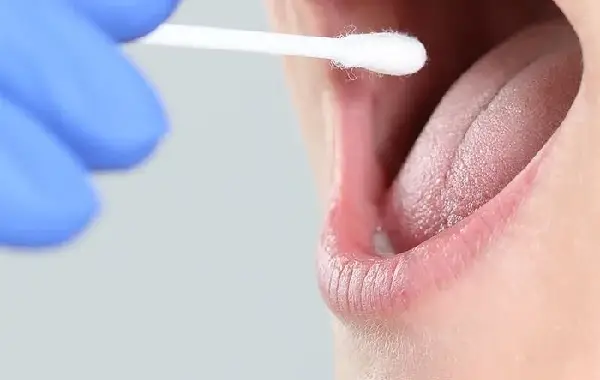Do I really need periodontal care?
If you suspect that you may need periodontal care, there’s no time like the present to protect your smile and preserve your natural tooth structure. Periodontitis can have damaging effects. In fact, in some severe cases, patients can even end up losing teeth. If you notice any symptoms such as inflamed or bleeding gums, it’s important to seek intervention as soon as possible.
Did you know…
When caught early, gingivitis can be treatable and reversible.
Ready to
schedule your appointment?

Gentle Treatment With Laser Therapy
With Fotona laser technology, we are able to offer gum disease treatment that is more comfortable than ever before. Laser therapy is a non-surgical treatment that effectively removes harmful bacteria from under the gums and promotes healthy tissue regeneration.

OralDNA Microbial Testing
Unlock the mouth-body connection with TKO’s Oral Pathogen Testing. Our affordable, accurate, easy-to-use bacterial test detects 11 periodontal pathogens linked to periodontal disease and poor oral health. Microbe LinkDx is a simple diagnostic tool to optimally eradicate bad bacteria by providing the information needed to develop the appropriate and customized periodontal therapy for you! Say goodbye to passive healthcare and embrace proactive, scientific-based periodontal care for you and your family!
JOIN OUR PERIO
SAVINGS PLAN
Perio Cleanings Included
No Insurance Needed
Discounts On Additional Services
PERIO SAVINGS PLAN
We believe everyone deserves affordable dental care, even patients who require a little extra TLC. By signing up for our periodontal care savings plan, you’ll be giving your smile the high-quality care it deserves and saving money along the way.
The Benefits of Periodontal Care
Frequently Asked Questions
Check out these frequently asked questions, or call us to speak with our team.
Gum disease is commonly split into three different stages. The first stage is called gingivitis. In this stage, there is usually no permanent damage to your teeth or gums yet. This means your dentist will likely be able to reverse and eliminate gum disease with proper care. Common symptoms of gingivitis include bleeding when brushing, inflamed and discolored gums, and chronic bad breath.
If left to worsen, gingivitis will advance to the second stage of gum disease, known as periodontitis. This stage of gum disease is unfortunately not reversible, but can be controlled with proper intervention. Symptoms of periodontitis usually include gum recession, increased sensitivity or sore teeth and gums, excessive gum bleeding, and very swollen or puffy gums.
The final stage is advanced periodontitis. In this stage, permanent damage to your teeth, gums, and jaw bone occurs. Common symptoms include pus forming between the teeth and gums, shifting of the teeth, changes in your bite, or the loosening of one or more teeth. Surgical intervention is usually necessary to treat advanced periodontitis. In very severe cases, your teeth may even need to be extracted and replaced with a dental prosthetic like dentures or dental implants.
No, gum disease is not contagious. This is because it is caused by bacteria that are already present in all of our mouths. In a healthy mouth, these bacteria are not found in a high enough quantity to cause gum disease. These bacteria become an issue when they are left to reproduce and grow uncontrollably. Gum disease occurs when poor oral hygiene allows bacteria to reproduce, or if a patient is genetically predisposed to gum disease.
Gum disease is caused by large quantities of bacteria flourishing in the mouth. This can be caused by poor oral hygiene. Failing to brush and floss properly allows the bacteria that are present in your mouth to reproduce and form plaque and tartar between your teeth and your gums. Over time, these bacteria begin to attack and infect your gum tissue. Over time, this infection can result in permanent, irreversible damage to your oral health unless you seek out proper treatment.
Some patients are also genetically predisposed to developing gum disease. This is why it is important to discuss with your doctor if there is a history of gum disease in your family. You and your doctor will work together to employ the best at-home care and in-office treatments to protect against it.
Periodontal disease forms when there is inflammation in the gums. This inflammation can lead to infection caused by an abundance of harmful oral bacteria. Your dentist may prescribe you antibiotics to help kill and control this harmful bacteria, allowing your gums to heal. If you are prescribed antibiotics to help control your periodontal disease, be sure to follow your doctor’s instructions to a tee to ensure the harmful bacteria is eradicated. If you fail to complete the full prescription of antibiotics, the bacteria could become resistant to subsequent treatments with the medication.




